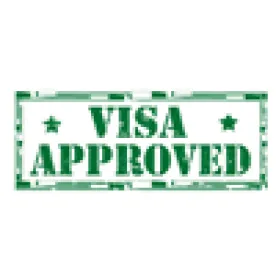I recently returned from a month in Vietnam meeting with clients and potential immigrants to the United States. Over the course of the past five years, I have watched on my travels to Vietnam the EB-5 program grow in popularity as a tool for Vietnamese nationals to self-sponsor for a U.S. green card. In fact, Vietnam now ranks second in EB-5 visa usage worldwide.
The growing interest in immigration to the U.S. has also spurned in Vietnam a new trend, with some immigration agents promoting the EB-3 visa program, to target clients that cannot afford the EB-5 program or wish to spend less money to immigrate to the U.S. This development is alarming, as in many cases, the way the EB-3 program is being described and offered to the Vietnamese public is inconsistent with the U.S. Citizenship and Immigration Service (USCIS) and U.S. Department of Labor Regulations (DOL) laws and regulations. In the most egregious cases, these EB-3 for sale programs intentionally circumvent the legal requirements and are fraudulent.
By way of background, EB-3 stands for Employment-Based Third category – a concept long existent in U.S. immigration law and a valid means to a green card when properly used. Employment-based sponsorship in U.S. immigration is divided into several categories, with Employment-Based Third category being reserved for sponsorship for positions requiring:
• less than two years’ training or experience (unskilled workers). This is predominately the focus of the Vietnamese EB-3 for sale programs; or
• At least two years of experience in the field of expertise (skilled workers); or
• A Bachelor’s degree.
The process of employment based sponsorship in the EB-3 category entails a three step process:
1. A PERM application is processed and filed by the employer with the U.S. Department of Labor. The process involves the U.S. employer engaging in various methods of recruitment to find U.S. workers for the position. This is because the DOL’s main purpose is to ensure that U.S. workers get preference for jobs. Only after recruitment is completed, and if the employer can show that they were not able to find minimally qualified, able, or willing U.S. workers for the position, would the DOL certify and approve a PERM application. If the sponsoring organization receives applications from interested individuals in the U.S. in response to the ads but does not review and interview the applicants or disclose receiving the applications to DOL, the sponsoring company and all persons involved in the process can be subject to enforcement action.
2. The second step, also undertaken by a potential employer, is an employment-based immigrant visa petition filed before the U.S. Immigration and Citizenship Services. This step is known as an I-140, Immigrant Petition for Alien Worker, and it is where the employer must show:
a. The employee has the qualifications that the position sought in its recruitment efforts during the PERM process; and
b. The employer has the ability to pay the employee the offered PERM wage. In no case, can the employee offer to reimburse the employer for their wage.
3. Finally, the third step involves an application for a green card/ immigrant visa by the foreign national employee. Importantly, this category of the employment-based sponsorship for permanent residence is also subject to annual limits on green cards, divided by geographic regions. For Vietnamese nationals, only those for whom EB-3 PERM applications were filed prior to Jan. 1, 2016, are able to apply for permanent residence in March of 2016, whereas in categories such as EB-5, there are no backlogs at this time for those born in Vietnam.
For those employers and employees generally using these programs, payment by the potential employee of fees to obtain their EB-3-based green card most often is required at the third and last step which involves an immigrant visa interview in Ho Chi Minh City. Often, applicants will think they are in the clear and will attend the interview only to find out that the Consulate has learned that the process was not conducted in accordance with the relevant laws and regulations, and that they are being denied their green card on the basis of fraud. Consulates are able to monitor trends in applications and, when they see a large number of applicants processing at their Consulate for the same position (for example, to work at a large chain-owned chicken farm, as an apple picker, or in a fast food restaurant) they review all applications closely in order to determine any possible fraud, as it is unfortunately all too common in the EB-3 unskilled worker category. The Government, including the U.S. Department of Labor, USCIS, and the U.S. Department of State can then work together to investigate the potential employer sponsoring these applications as well as any other parties including the applicant themselves. If it is then determined that the positions offered are not bona fide, all of the permanent residence cases for that particular employer would be subject to denial. The applicant unfortunately is often unaware of the consequences of submitting a false application to the government, but as a signatory to the immigration documents themselves, they are making an attestation to the government of the veracity of the information contained therein. A fraud based denial not only prevents them from getting the EB-3 based green card, but it has the capacity to act as a bar to future entry into the United States on any temporary visa or as a green card holde (INA Section 212(a)(6)(C)(i)).
The following are warning signs that applicants should be aware of when seeking an EB-3 unskilled worker position:
• They are asked to pay the legal fees, advertising fees, or administrative fees associated with the EB-3 process. U.S. Department of Labor regulations require that the employer cover all expenses in connection with the first step of the sponsorship process, which includes the legal fees, expenses, and all advertisement costs associated with the test of the labor market (20 CFR 656.12). At this time, there are no exceptions to this requirement and therefore, prospective employees or third parties may not provide any reimbursement or offer to cover any portion of these costs.
• Paying fees to an agent to find an EB-3 position for sponsorship. No fees can be charged in connection with obtaining a position for a foreign national with a prospective employer.
• Advertisements that state that the EB-3 position requires only a 12-month employment commitment. Jobs through the PERM process are required to be permanent in nature and should not have a finite completion date (INA Section 203(b)(3)).
• The applicant has never spoken to the sponsoring employer, has not had any communication (written, via telephone, or email) with the employer, and was not part of an interview process.
Importantly, the goal of this article is not to say that all EB-3 sponsorship is invalid. In many cases, employers sponsor and recruit foreign nationals and those applications are valid and approvable. However, it is important to differentiate what is acceptable and what is not. The following are indicators that an EB-3 sponsorship is valid:
• The employee is currently working with the employer overseas or in the U.S., and the employer now wants to sponsor them for permanent residence so that they can permanently retain their position with the company in the U.S.
• The employee replied to an advertisement by the company or a recruitment agency and was interviewed by the company for the position – whether over the telephone or via e-mail. They were required to discuss their skills and experience for the position and answer questions related to the job.
• The employee was not asked to pay any fee for the PERM application, legal costs for PERM, or to secure the position with the employer.
In summary, where an employer makes a bona fide job offer to a Vietnamese national for a position fitting into the EB-3 category, it is not unlawful to accept this offer and to allow the prospective employer cover all costs and fees of, at a minimum, the first step of the process, intending to fill this position permanently. However, we caution and urge those attracted to this potential strategy by materials claiming that this program was recently adopted by the U.S. government and requiring extensive payments covering all steps of the process, to consult a U.S. immigration attorney. Failure to determine if a program is valid can have serious immigration repercussions for foreigners seeking U.S. permanent residence or temporary visa status.



 />i
/>i

